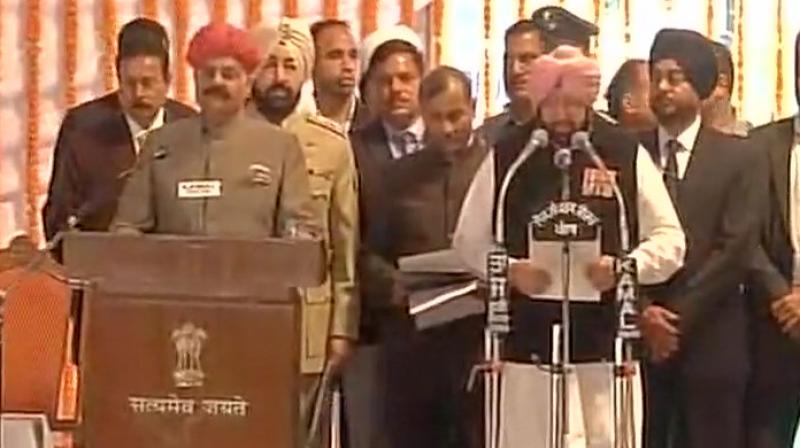States should have a say in foreign affairs
Foreign affairs is a subject of the Union under India's Constitution and, indeed, of all countries.

Last month, the Punjab government asked the Government of India to negotiate with Pakistan to allow the transport of exports through its territory. What is far more significant is that Punjab also wants the Centre to invite it to future trade meetings with Pakistan. The Centre conceded that this issue would be taken up when economic cooperation is discussed. Fortunately, Amarinder Singh has returned to power in Punjab. In his previous tenure, he gave evidence of a commitment to good relations with Pakistan. The CMs of both Punjabs met to discuss matters of common interest. Foreign affairs is a subject of the Union under India’s Constitution and, indeed, of all countries. But there has been a significant shift towards giving the states some voice on foreign affairs, especially on matters that directly impinge on their interests.
But Article 253 of the Constitution enables the Centre to ride roughshod on the states’ rights when it implements not only a treaty but also a decision at an international conference. It states: “Not withstanding anything in the foregoing provisions of this chapter (on Centre-state relations in the legislative sphere]), Parliament has power to make any law for the whole or any part of India for implementing any treaty, agreement or convention with any other country or countries or any decision made at any international conference, association or other body.” If the government concludes an international convention on, say, health, Parliament will have the power to make any law to implement it, although it falls in the state list. In the last 70 years, the number of such international “bodies” has grown significantly. Article 253 will cover an international sports “body” too. But the political realities have changed radically. From 1990 to 2014, the Centre was propped up by regional parties. Political realities affected the play of Article 253 in another respect as well.
Even when Rajiv Gandhi commanded a massive majority in the Lok Sabha, his policy on Sri Lanka was hostage to the Tamil Nadu government. It was West Bengal CM Jyoti Basu’s trip to Dhaka that enabled India to settle the Ganga row with Bangladesh. In June 1948, the Indian government offered the nizam of Hyderabad a draft “heads of agreement” on defence, foreign affairs and communications, which were reserved for the Indian government. Paragraph 7 added a qualification: “Hyderabad will, however, have freedom to establish trade agencies in order to build up commercial, fiscal, and economic relations with other countries; but these agencies will work under the general supervision of the Government of India. Hyderabad will not have any political relations with any country.” If that was appropriate for Hyderabad in 1948, it is even more so for the states of India’s union in 2017. It is not necessary to amend the Constitution to confer on the states a consultative status on foreign affairs when their interests are involved. Procedures can be devised by the Centre in consultation with the states, and the document can be endorsed by a joint resolution of both Houses of Parliament. There is a precedent for this.
In the wake of the constitutional crisis that engulfed Australia when governor-general Sir John Kerr dismissed Prime Minister Gough Whitlam from office in 1976, a series of constitutional conventions were held on a wide range of subjects, including Canberra’s treaty power. In May 1996, in a detailed statement to Parliament, foreign minister Alexander Downer announced the government’s decision on parliamentary scrutiny of treaties and consultation with states. Treaties will, as a rule, be tabled in Parliament “at least 15 sitting days before the government takes binding action”. Two new bodies would be set up: a joint parliamentary committee on treaties and a “treaties council”, which had been rejected earlier. A parliamentary resolution can give the states greater say on foreign affairs when their interests are involved and also recognise the right of their chief ministers to engage with foreign governments, provided the Centre is kept in picture. They do that already, but it should be recognised.
By arrangement with Dawn

